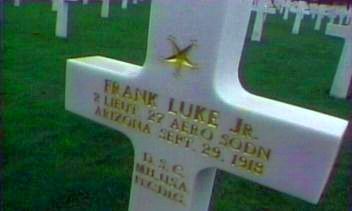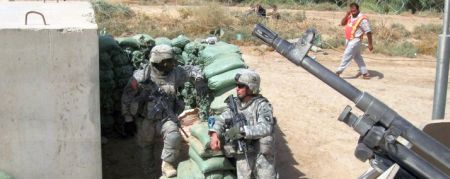
Publisher:
Bonnie King
CONTACT:
Newsroom@Salem-news.com
Advertising:
Adsales@Salem-news.com

~Truth~
~Justice~
~Peace~
TJP
Apr-15-2012 00:43

 TweetFollow @OregonNews
TweetFollow @OregonNews
What if Somebody Gave a War and Nobody Came?
Dr. Paul Balles Salem-News.comIsrael has bombed and attacked Lebanon, Syria, Iraq, Gaza and the Sinai. In the same period Iran has attacked no one!
 Günter Grass |
(MANAMA, Bahrain) - Achtung! Under no circumstances is a German legally permitted to criticize Israel!
But Nobel Prize winning poet Günter Grass says:
WHAT MUST BE SAID
Why do I stay silent, conceal for too long
What clearly is and has been
Practiced in war games, at the end of which we as survivors
Are at best footnotes.
Grass joining the Waffen SS as a youth, does not warrant shutting him up some 70 years later, but that's exactly what guilt-ridden Germans and deceitful Israelis have been trying to do.
The poem is more political than poetic, and that bothers its critics. Bibi Netanyahu called it "shameful".
"The shameful comparison that Günter Grass made between Israel and Iran, a regime which denies the Holocaust and calls for Israel's destruction, says very little about Israel and a great deal about Mr Grass," Netanyahu complained.
And then Bibi the bomber carried on with the same propaganda he's been using to convince his self-righteous ego: "It is Iran, not Israel, which presents a threat to the world's peace and security. It is Iran, not Israel which threatens the destruction of other states."
Bomber Bibi surely must hope that those who hear him don't follow the news. Israel has bombed and attacked Lebanon, Syria, Iraq, Gaza and the Sinai. In the same period Iran has attacked no one!
Often poets, whose creative talents can be ten times those of politicians, could have saved lives, governments or civilizations by moving an emotional public, Despite the fuss that Grass engendered, his prosaic poem lacks powerful emotive images.
Perhaps the most famous war poem is Wilfred Owen’s WWI, It evokes emotion with his moving poetic images.
DULCE ET DECORUM EST
 |
Bent double, like old beggars under sacks,
Knock-kneed, coughing like hags, we cursed through sludge,
Till on the haunting flares we turned our backs
And towards our distant rest began to trudge.
Men marched asleep. Many had lost their boots
But limped on, blood-shod. All went lame; all blind;
Drunk with fatigue; deaf even to the hoots
Of tired, outstripped Five-Nines that dropped behind.
Gas! Gas! Quick, boys! – An ecstasy of fumbling,
Fitting the clumsy helmets just in time;
But someone still was yelling out and stumbling,
And flound'ring like a man in fire or lime...
Dim, through the misty panes and thick green light,
As under a green sea, I saw him drowning.
In all my dreams, before my helpless sight,
He plunges at me, guttering, choking, drowning.
If in some smothering dreams you too could pace
Behind the wagon that we flung him in,
And watch the white eyes writhing in his face,
His hanging face, like a devil's sick of sin;
If you could hear, at every jolt, the blood
Come gargling from the froth-corrupted lungs,
Obscene as cancer, bitter as the cud
Of vile, incurable sores on innocent tongues,
My friend, you would not tell with such high zest
To children ardent for some desperate glory,
The old Lie; Dulce et Decorum est
Pro patria mori.
Wilfred Owen based his most famous poem on a quotation from the Latin poet Horace (Odes, iii ii 13), meaning 'It is sweet and proper to die for one's country'.
You don’t have to know what the Latin phrase means to be moved by those images. Grass knows how to do it. It’s sad that he didn’t.
Siegfried Sassoon, another WWI poet captured the politics of war. Not quite as moving or powerful as Owen, “Enemies” has the kind of images that make peace-loving people want to stop wars.
ENEMIES
 |
HE stood alone in some queer sunless place
Where Armageddon ends. Perhaps he longed
For days he might have lived; but his young face
Gazed forth untroubled: and suddenly there thronged
Round him the hulking Germans that I shot
When for his death my brooding rage was hot.
He stared at them, half-wondering; and then
They told him how I’d killed them for his sake—
Those patient, stupid, sullen ghosts of men;
And still there seemed no answer he could make.
At last he turned and smiled. One took his hand
Because his face could make them understand.
Unlike either Owen or Sassoon, Grass’ imagery belongs more to the philosopher or historian, even a mathematician, but not the visual artist.
Politics is a dangerous game to play with poetry, as Grass is discovering. American poet Ezra Pound got in trouble for politicizing his poetry and speeches in Italy during WWII recalling Owen and WWI.
These fought, in any case, some believing, pro domo, in any case. Some quick to arm, some for adventure, some from fear of weakness, some from fear of censure, some for love of slaughter in imagination, learning later . . .some in fear, learning love of slaughter; Died some "pro patria, non dulce non et decor" walked eye-deep in hell believing in old men's lies, then unbelieving came home, home to a lie, home to many deceits, home to old lies and new infamy; usury age-old and age-thick and liars in public places. Daring as never before, wastage as never before. Young blood and high blood, Fair cheeks, and fine bodies; fortitude as never before, frankness as never before, disillusions as never told in the old days, hysterias, trench confessions, laughter out of dead bellies.
Pound was as much historian as poet, and his poetry lost because of it. He could have made readers think twice about past events, given war a visual perspective, but he never had Owen’s power to make people want to bring the warriors home today.
California poet Robinson Jeffers had his say during the Vietnam War.
CONTEMPLATION OF THE SWORD
 |
Reason will not decide at last; the sword will decide.
The sword: an obsolete instrument of bronze or steel,
formerly used to kill men, but here
In the sense of a symbol. The sword: that is: the storms
and counter-storms of general destruction; killing
of men,
Destruction of all goods and materials; massacre, more or
less intentional, of children and women;
Destruction poured down from wings, the air made accomplice,
the innocent air
Perverted into assassin and poisoner.
The sword: that is: treachery and cowardice, incredible
baseness, incredible courage, loyalties, insanities.
The sword: weeping and despair, mass-enslavement,
mass-torture, frustration of all hopes
That starred man's forehead. Tyranny for freedom, horror for
happiness, famine for bread, carrion for children.
Reason will not decide at last, the sword will decide.
...
The words are strong, but they’re as cold as the stones he built his Carmel house with. They’re words that those of us who write about the politics of war can learn from.
Grass’ words had power to the Israelis who don’t want that story told. If they had Jeffers’ power, they might stop a war.
Pulitzer Prize winner Harold Pinter, dramatist and poet, offered this image of war, gruesome enough to worry a politician:
 |
THE BOMBS
There are no more words to be said
All we have left are the bombs
Which burst out of our head
All that is left are the bombs
Which suck out the last of our blood
All we have left are the bombs
Which polish the skulls of the dead
Allen Ginsberg, also a Vietnam War poet had this to say:
“The only thing that can save the world is the reclaiming of the awareness of the world. That's what poetry does,” howled Ginsberg.
Several hundred young men heard Ginsberg say what follows and left the US for Canada:
What if somebody gave a war and
Nobody came?
Life would ring the bells of Ecstasy and
Forever be itself again.
 Throughout his life as an educator, Dr. Paul J. Balles, a retired American university professor and freelance writer, has lived and worked in the Middle East for 40 years - first as an English professor (Universities of Kuwait and Bahrain), and for the past ten years as a writer, editor and editorial consultant.
Throughout his life as an educator, Dr. Paul J. Balles, a retired American university professor and freelance writer, has lived and worked in the Middle East for 40 years - first as an English professor (Universities of Kuwait and Bahrain), and for the past ten years as a writer, editor and editorial consultant.
He’s a weekly Op-Ed columnist for the GULF DAILY NEWS . Dr. Balles is also Editorial Consultant for Red House Marketing and a regular contributor to Bahrain This Month. He writes a weekly op-ed column for Akbar Al Khaleej (Arabic). He has also edited seven websites, including bahrainthismonth.com, womenthismonth.com
Paul has had more than 350 articles published, focusing on companies, personality profiles, entrpreneurs, women achievers, journalists and the media, the Middle East, American politics, the Internet and the Web, consumer reports, Arabs, diplomats, dining out and travel. Paul's articles on Salem-News.com are frank and enlightening. We are very appreciative of the incredible writings Dr. Balles has generated for our readers over the years, and we are very pleased to list him among our most valued contributors. <
Indulging the hard subjects that keep the world divided is our specialty at Salem-News.com, and with writers like Dr. Paul Balles on our team, we amplify our ability to meet challenges and someday, will see the effects of this exist in context with a more peaceful and generally successful world.
 |
 |
 |
 |
 |
Articles for April 14, 2012 | Articles for April 15, 2012 | Articles for April 16, 2012


Quick Links
DINING
Willamette UniversityGoudy Commons Cafe
Dine on the Queen
Willamette Queen Sternwheeler
MUST SEE SALEM
Oregon Capitol ToursCapitol History Gateway
Willamette River Ride
Willamette Queen Sternwheeler
Historic Home Tours:
Deepwood Museum
The Bush House
Gaiety Hollow Garden
AUCTIONS - APPRAISALS
Auction Masters & AppraisalsCONSTRUCTION SERVICES
Roofing and ContractingSheridan, Ore.
ONLINE SHOPPING
Special Occasion DressesAdvertise with Salem-News
Contact:AdSales@Salem-News.com

Salem-News.com:

Terms of Service | Privacy Policy
All comments and messages are approved by people and self promotional links or unacceptable comments are denied.
MM April 15, 2012 8:03 am (Pacific time)
Iran has not attacked anyone. Why should they? They have Hezbollah and other terrorist groups to do this for them. Ask the people of Iraq and Lebanon about how non-aggressive Iran is. They will tell you how foolish that notion is.
Note that when Israel takes military action, it has been in response to clear threats to its own security and the safety of its people. Or does responding to rocket attacks not constitute a valid reason as far as Israel is concerned?
Editor: Israel is an illegal apartheid state guilty of war crimes. Iran is imperfect, but Israel is a warmonger government. 29 Israelis have died in these unguided rocket attacks you reference, you find that to be an excuse to destabilize the world and commit war crimes and crimes against humanity? I don't..
[Return to Top]©2026 Salem-News.com. All opinions expressed in this article are those of the author and do not necessarily reflect those of Salem-News.com.